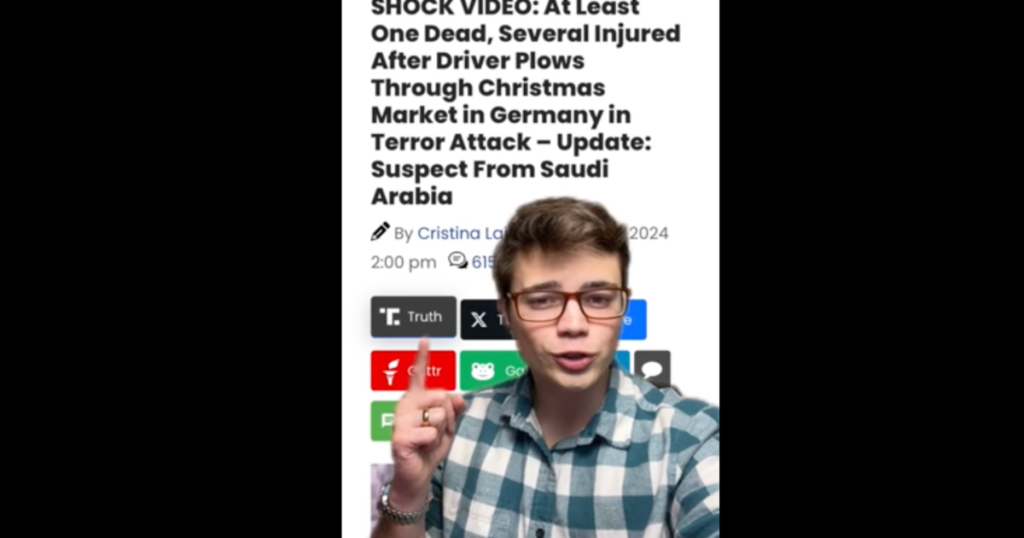In recent coverage of a terror attack in Magdeburg, Germany, the legacy media has presented a rather detached narrative, stating that “a car has driven into a group of people” as if the vehicle acted independently. This phrasing diminishes the human agency behind the act of violence, diverting attention from the individual responsible. Media outlets have reported that a 50-year-old man from Saudi Arabia was driving the car that plowed through a Christmas market, resulting in tragic casualties—at least 11 lives lost and between 60 to 80 injuries. Following the attack, police discovered explosives in the driver’s vehicle, further underscoring the premeditated nature of this attack.
Reflections on previous incidents unveil a troubling pattern. In December 2016, a similar attack occurred in Berlin, where an Islamic terrorist also drove through a Christmas market, claiming 13 lives. Such incidents draw attention to the recurring theme of Islamist violence in Europe and raise questions about the media’s portrayal of these attackers. By omitting the identities of the perpetrators or the nature of their intentions, a skewed narrative emerges that does not accurately reflect the serious implications of their actions. The omissions could be seen as an effort to prevent the public from associating specific groups with acts of violence, continuing a broader agenda that aims to frame such events through a lens of political correctness.
This selective reporting raises valid concerns about public safety and national security. The vulnerability of civilian spaces like Christmas markets is exacerbated when the public remains uninformed about the threats posed by individuals crossing borders into European countries. A failure to present the complete picture regarding who is entering the country and under what circumstances may inadvertently contribute to ongoing threats. It’s essential for the media to provide comprehensive information, enabling the populace to engage in informed discussions about immigration, security, and societal risks.
The implications of misrepresented narratives extend beyond mere factual inaccuracies. They cultivate an environment where fear and confusion can thrive, particularly around traditional and cultural events that communities cherish, such as Christmas markets. These gatherings, meant to promote joy and togetherness, become tainted by the presence of violence and perceived threats. The juxtaposition of a festive atmosphere against the backdrop of terror leads to changes in public behavior and attitudes, driving community members to reconsider their participation in such events or advocate for increased security measures.
Furthermore, continued highlighting of such attacks instigates broader societal reactions that could ultimately impact political discourse. The refusal or hesitation among certain media outlets to openly discuss the identity of attackers may also contribute to increased polarization and mistrust within communities. People may feel compelled to search for alternative sources of information that openly address these stories, potentially leading to the proliferation of sensationalism or conspiracy theories. As people look for clarity, they may turn away from traditional media in favor of platforms that appear more transparent, further fracturing the existing media landscape.
The narrative constructed around these tragic events is crucial for societal understanding and policy-making. Acknowledging the reality of these incidents while also maintaining an effective dialogue around issues of security, immigration, and cultural identity is fundamental in ensuring that such tragedies can be more effectively prevented in the future. The balance between delivering urgent news and preserving journalistic integrity lies in the ability of media to present facts without omitting critical details that bear significantly on public perception and safety. Only by fostering a complete and truthful discourse can communities hope to navigate the complexities of modern threats and work towards a more secure future.

